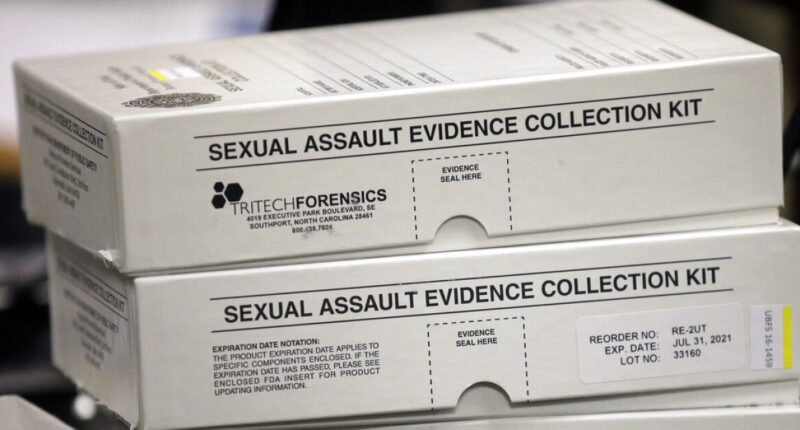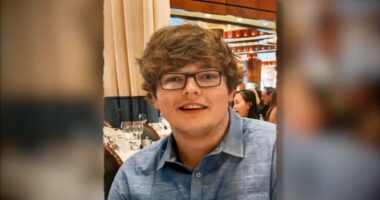In Colorado, there are currently 1,407 individuals awaiting the results of their DNA rape kit tests, as of January 31. The Colorado Bureau of Investigation (CBI) indicates that these individuals can expect a wait time of around 529 days for their results.
Individuals in this situation are encouraged to participate in a town hall event aimed at ensuring their voices are heard. Scheduled for March 3, this event is expected to welcome various stakeholders including legislators, law enforcement officials, and DNA forensic nurses.
Expressing her frustration, Miranda Spencer, a survivor of sexual assault caught in this backlog, described the experience as both incredibly frustrating and dehumanizing. She highlighted how the process made her feel like just a number rather than a human being.
The backlog at the state crime lab was exacerbated by an investigation into a former CBI forensic scientist, Yvonne “Missy” Woods, who is accused of mishandling DNA evidence. In 2024, half of the lab work done at CBI was dedicated to reviewing her cases.
Before Woods retired in late 2023, the backlog of sexual assault evidence kits at CBI was more than 200 days. According to a spokesperson, CBI’s ultimate goal is to see a 90-day turnaround of test results.
“Missy Woods is obviously not perfect, but I think it’s way too easy to just blame her. It’s deeper than that,” Spencer said.
Spencer first told her story publicly before lawmakers during a joint meeting of the Judiciary Committees in January. Her testimony spotlighted the issue and forced the public to pay attention.
“I was going to try to get someone to listen to me about what I was experiencing in terms of the rape kit backlog. I was not at all aware of how massive the issue was,” Spencer said about walking into the State Capitol to testify. “It was definitely the hardest thing I’ve ever done… It’s not very comfortable to have to talk about something so violating that has happened to you.”
Spencer said she was drugged and raped by a man she met on the dating app Bumble in November 2023. She provided Denver7 with medical records that show she suffered fentanyl poisoning in addition to injuries from a sexual assault.
“Every single aspect of my life has been different. I do everything differently. I act differently,” Spencer said. “I live in literal constant fear. You know, I have CPTSD (complex post-traumatic stress disorder) from this, and I’ve experienced some very, very severe panic attacks in my home, where I’ve had to call 911 because I think, you know, my perpetrator is in my house to kill me.”
After the alleged assault, Spencer said she went to Denver Health, where a DNA rape kit was conducted. She called the process “extremely invasive.”
“I will say that Denver Health does have a great program in place, and I was taken care of. And I feel, like, almost misled. I was misled to think that the process was going to be a lot different than it ended up being because of how well I was treated at Denver Health,” Spencer explained. “I was told there that it was going to take eight to 10 months for my kit to be processed.”
Spencer was shocked by how long it would take to get answers. She obtained a civil restraining order against her alleged attacker, which expired at the end of 2024.
“$10,000 later, I still don’t have a permanent restraining order,” Spencer said.
When Spencer testified before lawmakers, she had no idea the magnitude of the backlog of DNA rape kits at CBI.
“It’s even more devastating to know that it’s not just me,” Spencer said. “If I were the only one going through it, that’s one thing — that’s me, right? But knowing that there’s thousands of other people that are just waiting, not to mention every person that harmed those people is still out on the streets, very likely harming other people… It’s disgusting. It’s such an inhumane thing.”
CBI has a new dashboard online that shows the number of cases awaiting testing and the estimated turnaround time for results.
Senate Bill 25-105, a Department of Public Safety Supplemental, was amended to allow CBI to roll over around $3 million of the $7.4 million the State of Colorado originally provided to address the fallout of the Woods investigation. A spokesperson with CBI said the funding would allow them to send an estimated 1,000 cases currently waiting in the backlog to be tested at private labs. The bill has cleared both the Colorado House of Representatives and Senate and is waiting on Governor Jared Polis’ signature.
CBI said once agreements are signed with private labs, it expects to see its first reduction in the backlog by July. The bureau hopes to cut the backlog in half in roughly a year.
CBI currently has 16 DNA scientists on their staff, with another 15 in training.
Denver7 Investigates
How an investigation into a former CBI scientist caused a ripple effect
Spencer worries the backlog will only deter survivors from deciding to report a crime.
“If I would have known what I was going to have to go through to report my rape, I cannot tell you confidently that I would have ever reported it,” Spencer said. “We are humans. We’re not just a rape kit. We’re humans. And no one asks for this to happen to them. It’s already so hard to even just report it and get a rape kit in the first place, to then just be put in limbo for whoever knows how long. It’s disturbing… It perpetuates rape culture is what it does.”
After Spencer shared her story and realized how many people were experiencing the same delays, she said she had to do something. Originally, she wanted to organize a protest. After speaking with the Colorado Coalition Against Sexual Assault (CCASA), they decided a town hall was the way to go.
“We decided to do a town hall to continue the conversation, to keep the pressure on CBI, and to make sure that this wasn’t just a ‘Oh, we’re going to clear the backlog again.’ Like, no, we’re going to clear it, and we’re going to make sure that it stays cleared,” Spencer said. “We’re not doing this again. No more backlogs. It’s unacceptable.”
Elizabeth Newman, the public policy director with CCASA, said the impact of Spencer sharing her story shows just how powerful it is when survivors speak.
“We really want to center the voices of the people who are in that backlog, who have been affected by this delay, who want to see a change. And really move along to a place where we take sexual violence seriously, and we honor the trauma and the resilience of survivors by responding appropriately and sensitively and in a timely manner,” Newman said.
Newman said sexual violence thrives in secrecy, and shining a light on the tough topic is one way to prevent future crimes from occurring.
“Sexual assault takes away a survivor’s sense of control and safety, and seeking a forensic evidence kit and medical care is a way to try to restore some of that control and try to get answers. And so, to have this backlog just delay their opportunity to get answers, to get information, to understand what happened to them, that is increasing the trauma that someone’s experiencing, and it’s keeping them in this state of limbo,” Newman said. “This is yet another failure of our system to take seriously sexual assault.”
Spencer hopes other survivors attend, saying she wants to meet them and let them know the darkest days of their lives do not define them.
“I would want them to know that they’re not alone and that I understand exactly all of the things that they’re feeling and that I cannot do this alone,” Spencer said through tears. “It can’t just be me, it can’t just be my story. I need people to come and support me and everyone else. I get that it’s hard, it’s awful, but we know that there’s power in numbers, and I know if they feel anything like I do, they don’t want anybody else to ever go through anything like this ever again.”
The town hall is planned for 11:30 a.m. on Monday, March 3 inside the Old Supreme Court Chambers at the Colorado State Capitol. It is expected to last until 1 p.m.
Those who plan to attend can register for the event online. There will also be a virtual option to join the town hall.

















